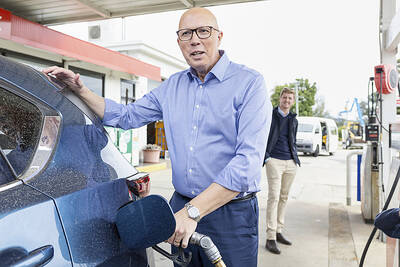In the battle to find a niche in the fiercely competitive wine market, a Uruguayan vineyard is making wine without sugar aimed at the growing number of diabetics.
The 119-year-old Vinos de la Cruz family vineyard in the middle of the pampas has tapped into a flourishing new market because of the spread of the disease.
"As Uruguay is not known on a world level, our idea was to find a parallel way to find different consumers for organic wine," said Juan Jose Arocena, director of the 60-hectare vineyard which is about 100km from Montevideo.
The family decided in 1997 to devote half of their land to natural methods and not use chemicals or synthetic agents. Animal manure became the fertilizer of choice. The changeover took four years.
De la Cruz discovered its new niche when the first bottles were marketed in 2002. A diabetes sufferer accidentally discovered the wine and approached the vineyard.
"When this person found out that it did not affect his glycemia, he came to see us," Arocena said.
Analysis, which was certified by a US laboratory, showed that the wine did not contain any sugar.
In the aerated vats, the yeast completely changes the natural sugar in the grapes into alcohol. Experts believe this is because the sugar is not affected by chemical agents used by other vineyards, which kill the yeast when it is 90 percent fermented.
"We still do not know the exact reason for this phenomenon," said Arocena, who added that he had not come across a similar example on any of his visits to wine fairs.
He believes the reason could be linked to the soil at the vineyard.
"Wines that were made before the discovery of fungicides and herbicides probably also did not have sugar, but no one carried out tests then," he said. "Diabetes was not a problem as it is now."
Eight percent of the world population has diabetes and in the US, the figure is now 14 percent.
De la Cruz's wines have an alcoholic content of 11.5 percent and sell for an average price of US$20 to middle class consumers who are ready to pay a higher price for the ecologically friendly wine.
Its production is 30 percent below that of traditional vineyards because of its natural methods.

‘EYE FOR AN EYE’: Two of the men were shot by a male relative of the victims, whose families turned down the opportunity to offer them amnesty, the Supreme Court said Four men were yesterday publicly executed in Afghanistan, the Supreme Court said, the highest number of executions to be carried out in one day since the Taliban’s return to power. The executions in three separate provinces brought to 10 the number of men publicly put to death since 2021, according to an Agence France-Presse tally. Public executions were common during the Taliban’s first rule from 1996 to 2001, with most of them carried out publicly in sports stadiums. Two men were shot around six or seven times by a male relative of the victims in front of spectators in Qala-i-Naw, the center

Australia’s opposition party yesterday withdrew election promises to prevent public servants from working from home and to slash more than one in five federal public-sector jobs. Opposition leader Peter Dutton announced his conservative Liberal Party had dropped its pledge that public servants would be required to work in their offices five days a week except in exceptional circumstances. “I think we made a mistake in relation to this policy,” Dutton told Nine Network television. “I think it’s important that we say that and recognize it, and our intention was to make sure that where taxpayers are working hard and their money is

DISPUTE: Beijing seeks global support against Trump’s tariffs, but many governments remain hesitant to align, including India, ASEAN countries and Australia China is reaching out to other nations as the US layers on more tariffs, in what appears to be an attempt by Beijing to form a united front to compel Washington to retreat. Days into the effort, it is meeting only partial success from countries unwilling to ally with the main target of US President Donald Trump’s trade war. Facing the cratering of global markets, Trump on Wednesday backed off his tariffs on most nations for 90 days, saying countries were lining up to negotiate more favorable conditions. China has refused to seek talks, saying the US was insincere and that it

Canadian Prime Minister Mark Carney is leaning into his banking background as his country fights a trade war with the US, but his financial ties have also made him a target for conspiracy theories. Incorporating tropes familiar to followers of the far-right QAnon movement, conspiratorial social media posts about the Liberal leader have surged ahead of the country’s April 28 election. Posts range from false claims he recited a “satanic chant” at a campaign event to artificial intelligence (AI)-generated images of him in a pool with convicted sex offender Jeffrey Epstein. “He’s the ideal person to be targeted here, for sure, due to